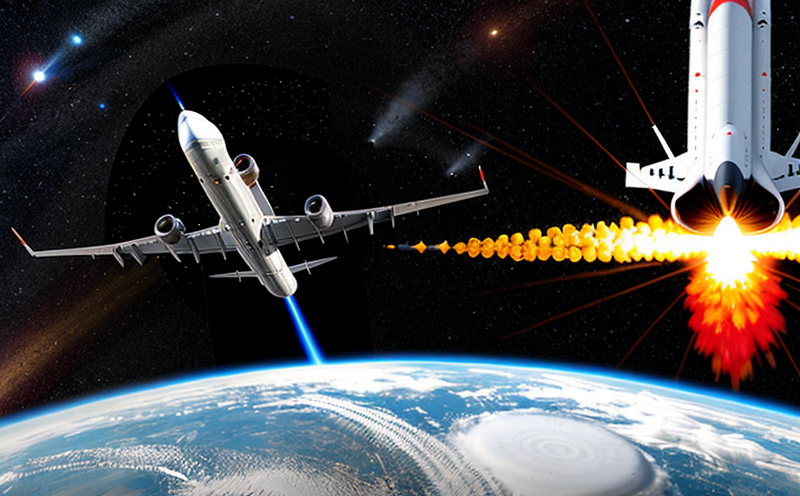Testing the interaction between aerospace materials and various fuel types
Unlocking the Secrets of Aerospace Materials and Fuel Interactions A Game-Changer for Businesses
In the realm of aerospace engineering, materials science plays a crucial role in designing and developing aircraft, spacecraft, and missiles that can withstand extreme temperatures, pressures, and environments. However, one critical aspect often overlooked is the interaction between these advanced materials and various fuel types. This phenomenon can significantly impact the performance, efficiency, and safety of aerospace systems. At Eurolab, we understand the importance of testing the interaction between aerospace materials and fuel types, which is why we offer a specialized laboratory service to help businesses like yours overcome this challenge.
What is Testing the Interaction between Aerospace Materials and Fuel Types?
Testing the interaction between aerospace materials and fuel types involves evaluating how different materials behave when exposed to various fuels, such as jet-A1, RP-1, or hydrogen. This assessment helps determine the compatibility of materials with specific fuels, which is essential for ensuring the integrity and performance of aerospace systems. Our team at Eurolab employs cutting-edge technologies and expert knowledge to simulate real-world conditions, allowing us to accurately predict how materials will interact with different fuel types under various operating scenarios.
The Importance of Testing the Interaction between Aerospace Materials and Fuel Types
In todays competitive aerospace industry, understanding the interaction between materials and fuels is no longer a nicety its a necessity. Here are just a few reasons why
Safety Incompatible material-fuel interactions can lead to catastrophic failures, compromising the safety of crew, passengers, and equipment.
Performance When materials dont interact well with fuels, it can result in reduced efficiency, decreased fuel consumption, and increased emissions.
Reliability Testing material-fuel interactions ensures that aerospace systems operate within designed parameters, minimizing downtime and maintenance costs.
Advantages of Using Eurolabs Testing Service
By partnering with Eurolab to test the interaction between your aerospace materials and various fuel types, youll benefit from
Comprehensive Assessment Our team conducts a thorough evaluation of material-fuel interactions under various conditions, providing a detailed understanding of compatibility.
Expertise Leverage our experience in testing advanced materials and fuels to ensure accurate predictions and reliable results.
Cost Savings By identifying potential issues early on, you can avoid costly redesigns, retesting, or even catastrophic failures.
Regulatory Compliance Our tests meet or exceed industry standards, ensuring your products conform to regulatory requirements.
Some of the key benefits of our testing service include
Improved Safety and Reliability
Reduce risks associated with material-fuel incompatibility
Minimize downtime and maintenance costs due to failures
Enhance overall system performance and efficiency
Enhanced Performance and Efficiency
Optimize fuel consumption and emissions
Increase system lifespan through better material selection
Reduce the need for costly redesigns or retesting
Cost Savings and Regulatory Compliance
Avoid significant expenses associated with failures or non-compliance
Meet industry standards and regulatory requirements with confidence
QA Section
Q What types of materials can be tested?
A We test a wide range of aerospace materials, including metals, composites, ceramics, and polymers.
Q Can Eurolab conduct testing for various fuel types?
A Yes, our laboratory is equipped to simulate interactions with jet-A1, RP-1, hydrogen, and other fuels commonly used in the aerospace industry.
Q How long does a typical test take?
A The duration of each test varies depending on the complexity of the material-fuel interaction being evaluated. Our team will work closely with you to determine the best testing schedule for your specific needs.
Q What kind of equipment do you use for testing?
A We employ cutting-edge technologies, including specialized furnaces, thermogravimetric analyzers (TGA), and scanning electron microscopes (SEM) to simulate real-world conditions and evaluate material-fuel interactions.
Q Can I trust the results from Eurolabs testing service?
A Absolutely. Our team of experts has extensive experience in materials science and aerospace engineering, ensuring that our tests are conducted with the highest level of accuracy and reliability.
At Eurolab, were dedicated to helping businesses like yours overcome the challenges associated with material-fuel interactions. By partnering with us, youll gain a deeper understanding of your products performance, efficiency, and safety giving you a competitive edge in the aerospace industry. Dont let unknown variables hold you back from achieving success. Contact us today to learn more about our testing services and take the first step towards unlocking the secrets of aerospace materials and fuel interactions.




